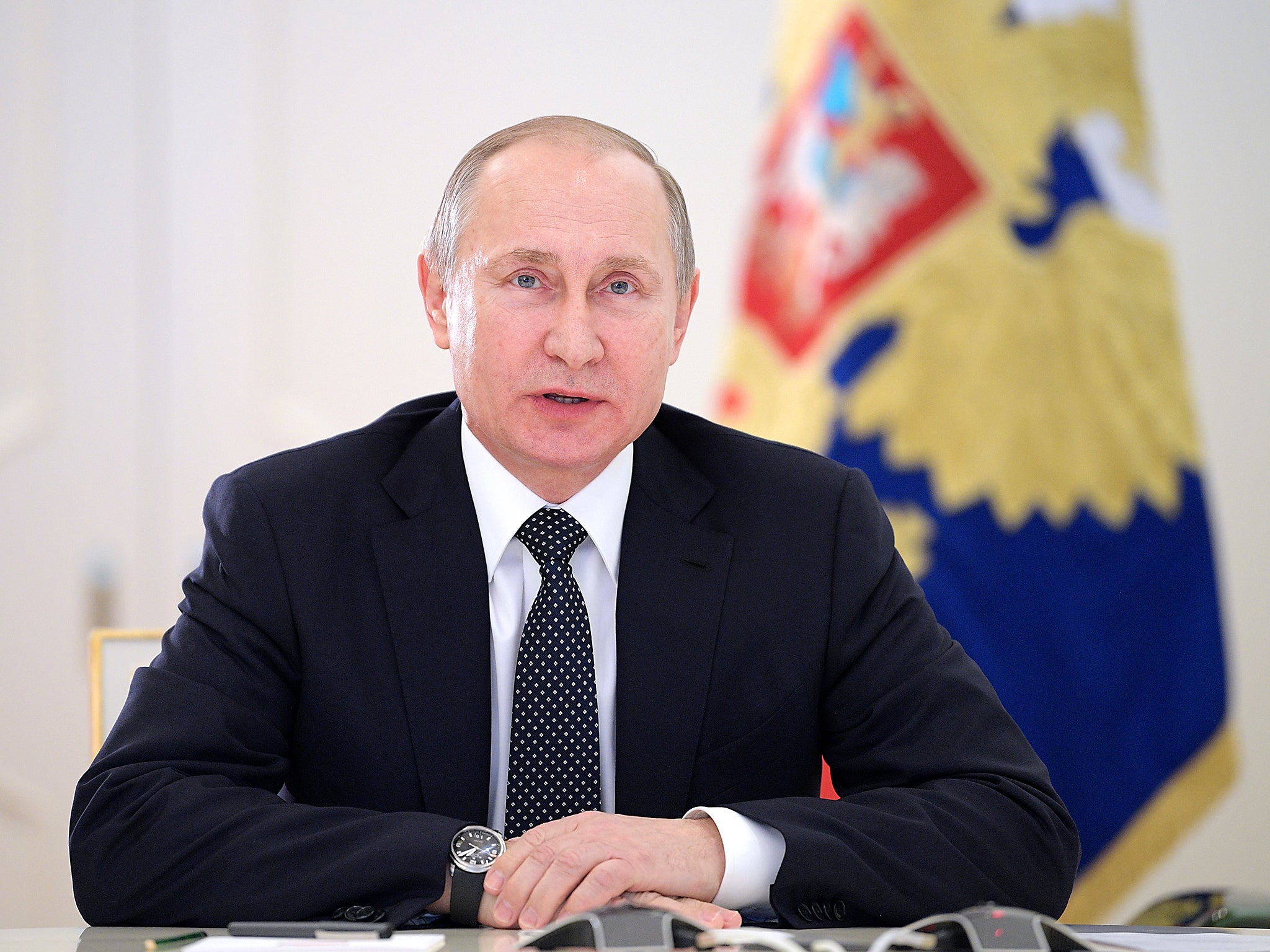Donald Trump loosens sanctions preventing Russia intelligence agencies from cyberspying

Donald Trump's government has loosened sanctions imposed by Barack Obama on Russia's Federal Security Service, that would make it easier for US companies to do business with the intelligence agency.
A notice posted on the Treasury Department website said that sanctions imposed by Mr Obama - first in 2015 and then tightened late last year amid accusations of Russian hacking of political parties - had been eased.
“All transactions and activities otherwise prohibited pursuant to Executive Order 13694…as amended by EO 13757, are authorised,” says the notice.
Russia’s Tass News Agency said: “US authorities have weakened the sanctions regime against the Federal Security Service of Russia (FSB).”
It said that President Vladimir Putin’s spokesperson, Dmitry Peskov, did not immediately have a comment on the development. “First we need to understand what is at stake”, it quoted him as saying.
There had been speculation that Mr Trump was set to ease or lift some of his predecessor's sanctions against Russia ahead of his first conversation last weekend with President Vladimir Putin. But the matter apparently did not come up during the call.
The amended order, announced by the Treasury in December 2016, blocked four additional Russian intelligence agents and five entities – including the FSB – from obtaining property for use in cyber-attacks against the US.
It gave the Treasury the authority to determining “that circumstances no longer warrant the blocking of the property and interests in property of a person”.
The FSB was the only Russian intelligence entity named in the amendment announced Thursday, leaving much of the emergency action taken by Mr Obama intact.
White House Press Secretary Sean Spicer denied that the amendment was an easement of sanctions against Russia, adding that it was a "fairly common practise" by the Treasury Department.
Mr Trump has said that he was willing to lift sanctions imposed in 2014 related to their illegal annexation of Ukraine's Crimea peninsula, in exchange for a nuclear arms reduction agreement.
"They have sanctions on Russia – let’s see if we can make some good deals with Russia,” Mr Trump said last month. "For one thing, I think nuclear weapons should be way down and reduced very substantially, that’s part of it."
In his final press conference as president, however, Mr Obama criticised the idea and said that the sanctions should remain attached to the reason they were imposed in the first place.
"The reason we oppose the recall was not because of nuclear issues. It was because the independence and sovereignty of a country, Ukraine, had been encroached upon by force by Russia,” Mr Obama said.
“I think it will probably best serve not only American interests but also the interests of preserving international norms,” he added, “if we made sure that we don’t confuse why these sanctions have been imposed with a whole set of other issues."
Secretary of State Rex Tillerson's business ties with Russia raise significant concerns about conflicts of interest. While he was ExxonMobil CEO, Mr Tillerson brokered an energy agreement with the Russian government and the Texas oil company.
But the 2014 sanctions caused an immediate halt to the oil operations in the region between Exxon and state-owned oil company, Rosneft.
According to 2016 lobbying disclosure forms, ExxonMobil had lobbied against legislation that would have levied the sanctions against Russia.